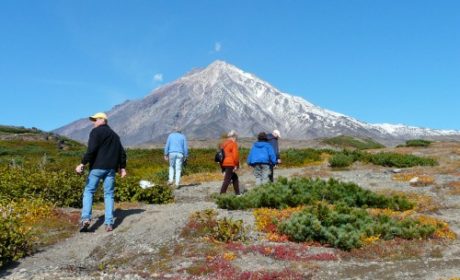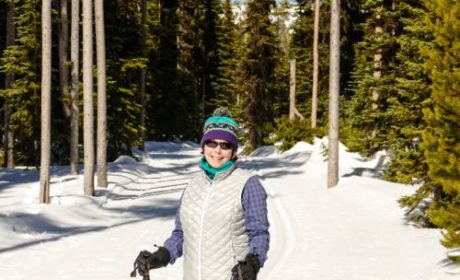Updated 12.14.2018: After every terrorist attack, especially the ones targeting tourism, I receive emails about how to travel safely on an international trip. Some of you ask about the precautions to be taken. Others wonder if they should cancel upcoming trips altogether.
Each terrorism event—the latest being the shooting at the Strasbourg Christmas Market in France—creates an avalanche of Internet travel articles encouraging you to go despite the awful event that’s just happened. Raising my hand here. After 911, I wrote one that I called traveling in terrorist times.
While travel cheerleading is a good thing—exploring other cultures and countries encourages understanding—it would be irresponsible of me to push you out into the world without including tips for taking care of yourself, including dealing with the fear and traveling safely.
Tips to travel safely during a crisis

When it comes to anxiety, travel expert, Wendy Perrin, wrote an excellent article about how to deal with the fear. While I agree that we shouldn’t give in to fear, I also suggest that you check your anxiety meter. If the needle veers to the “I’ll be worried the entire trip and unable to enjoy myself,” then you need to change plans to a destination that feels safer to you.
But if you’ve measured the fear against the desire to see a destination and the destination has won out, go prepared. I’m sharing the safe travel strategies that Alan and I use. Not only are they invaluable during a major event such as a terrorism attack, they’re also useful during any type of emergency.
Travel precautions to take before you go
Register with the U.S. State Department’s Smart Traveler Enrollment Program. After enrolling, you’ll receive information about safety conditions from the U.S. Embassy for the countries that you’re visiting. Registering also alerts the U.S. Embassy as to your whereabouts in case the embassy needs to contact you during a crisis. And the program provides a way for family and friends to reach you in case of an emergency
Research the location of the U.S. Embassy or Consulate for every destination that you visit. Create a document of addresses and phone numbers to store electronically on your phone. Print out another copy just in case your phone stops working. Knowing where to go or whom to contact during a crisis is crucial to your safety.
Send a copy of your itinerary, with accommodation addresses and contact numbers, to a family member or friend. Knowing exactly where you’re supposed to be is a relief to them during emergency situations.
Create a telephone tree for family and friends. Assign one person as the captain. This way, you’ll only have one person to call in case of an emergency. Often during a weather event, natural disaster or terrorist crisis, phone connectivity is limited. Being able to make that one call will greatly relieve friends and family at home.
Pack medications in your carryon. And if your life depends on that medication, carry at least two weeks worth even on shorter trips. You never know what delays may occur.
Join a medical evacuation program. Hopefully you won’t need it but if you are hospitalized, programs like MedjetAssist will transport you to the hospital of your choice. This means you can come home to heal. Most medical insurance takes you to the closest hospital from where the injury occurred, wherever that might be.
Travel safety tips for during the trip
Stay aware. It’s easy to become engrossed in checking text messages, taking photos or anticipating a trip so that we ignore what’s happening around us. Pay attention, especially for scenarios that don’t look quite right to you. If you’re in a crowd of people, it’s 90 degrees outside and someone is wearing a heavy jacket and acting oddly, move away from that person. Express your concerns to a police officer, if there’s one around. Listen to your gut feelings.
Don’t hang out in the airport terminal. Time your arrival at the terminal to the opening of the ticket counter for international flights. Check in, then immediately continue through the security line to the gate areas rather than wandering through restaurants and shops of the main terminal. Most airport bombings happen in the terminal before security. Even if there’s a heavy security presence before the terminal, travelers are still vulnerable. Continuing through to the gate areas or lounges offers an extra layer of protection.
Plan your exit. Find the closest building exit to you, whether you’re in a café, theater, hotel room or airport. This is good advice even when you’re at home. Accidents happen, roofs cave in, bad things occur. Stay alert and have a plan.
Carry important papers on your person. Wear a travel money belt that can be tucked into clothing to carry passport, money, credit cards and emergency information. Bonus points if it contains RFID blocking technology. A fanny pack is another alternative. Yes, they look dorky but when that emergency happens, you’ll keep the important stuff with you.
Always have a plan to meet at a particular spot should you become separated from friends or family.
And I’ll end with a bit of travel cheerleading. Yes, you can follow all of my travel safely tips and still end up hurt, or worse. But statistics show that you have a much greater chance of dying in a car wreck than in a terrorist attack. The only difference is that the tragedy won’t be reported worldwide for days, further emphasizing the fear of the event. So be smart about your travels, know your anxiety tolerance, then go explore the world.
Did you know that we publish a weekly broadcast with the latest articles from My Itchy Travel Feet, timely trip inspiration and travel deals? Subscribe by clicking here and checking the “Weekly Updates” box. We offer a monthly newsletter, too. Why not sign up for both?



